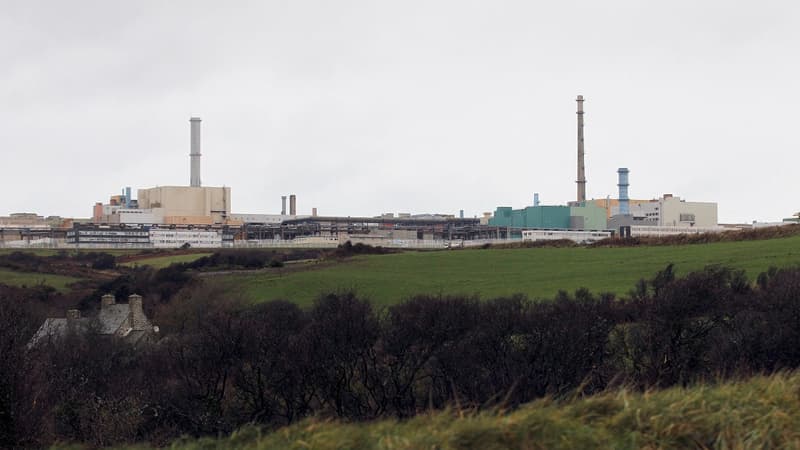The Orano nuclear fuel reprocessing centre in The Hague (English Channel) was “closed” on Monday following the detection of a major leak of nitric acid, the group announced, assuring that the incident “was not radiological” and “has no impact on the environment.”
“Today, at around 4:00 a.m., a nitric acid leak of approximately 40 m3 was detected in a recycling acid storage workshop (STU workshop) at the Orano la Hague site. This liquid was automatically recovered in a storage tank. retention provided for this purpose,” the French group specialising in nuclear fuel announced in a statement posted on its website.
The recycled acid that escaped from its storage site was “clean and not loaded with uranium,” said an Orano spokesman contacted by AFP.
A security perimeter established as a protective measure
Nitric acid is used to dissolve nuclear materials. It is very potent and can cause skin burns and is corrosive to the respiratory tract. “As a precautionary measure, a security perimeter was established for non-essential personnel for the management of the event who were invited to return home and all facilities on site were closed,” according to the group’s press release. About 600 employees are currently working on the site, compared to about 4,000 during normal operations, said the Orano spokesman.
The nuclear safety authority, the nuclear watchdog, informed of the incident, told AFP that this “environmental” incident was not “at this stage” the subject of a declaration of significant events related to nuclear safety, classified from 0 to 7 on the Inés scale (International Nuclear Event Scale). Every year, some 1,100 tonnes of spent fuel, mainly from French nuclear power plants but also from Europe and Japan, are sent to the processing and recycling plant in La Hague, located on the Cotentin peninsula. After a cooling process in a pool, the fuels are sheared before being immersed in a bath of nitric acid responsible for dissolving the nuclear materials, explains Orano. The acid is then recovered from the reprocessed uranium and reused.
Source: BFM TV


